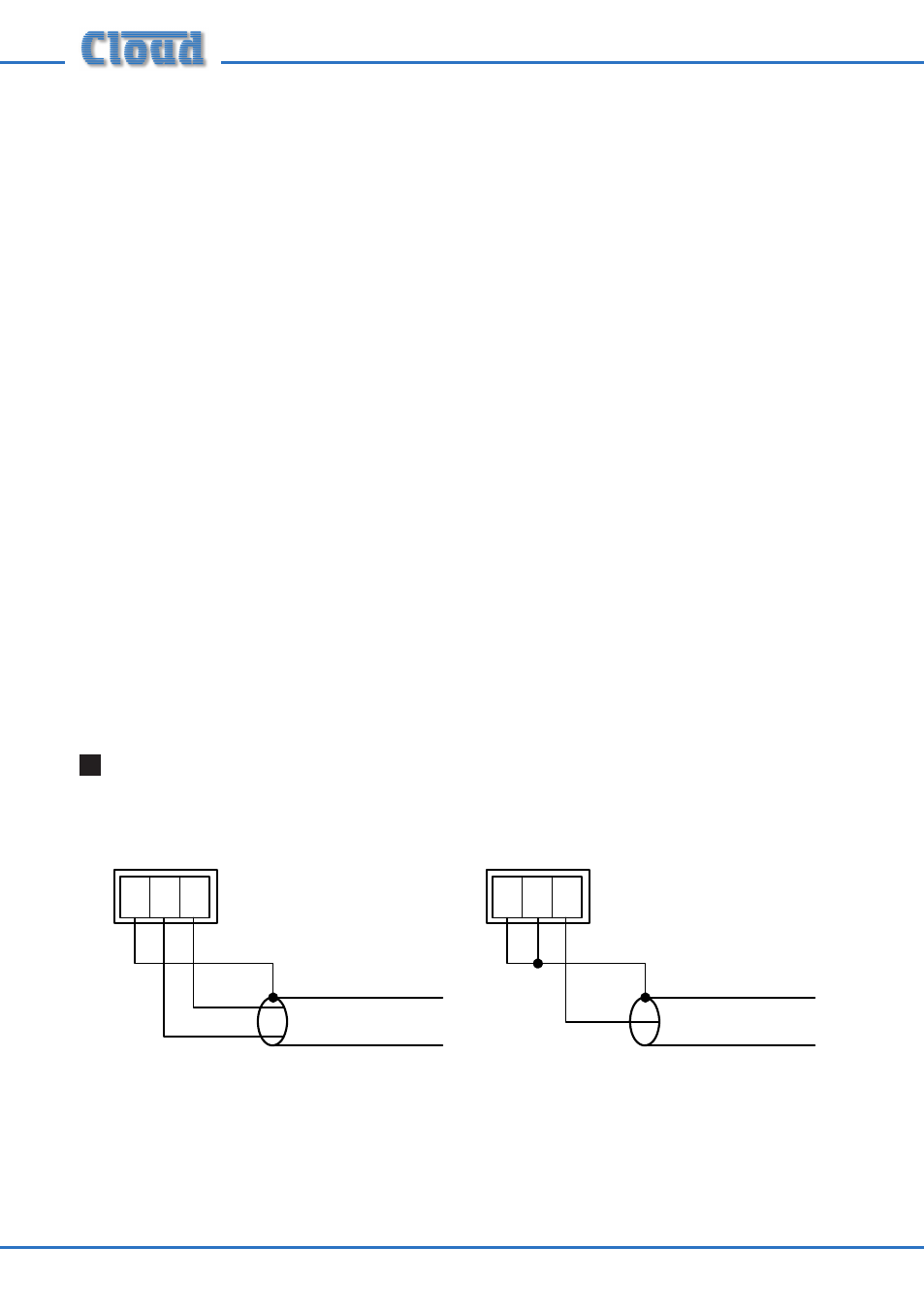Mic input, The ma60 and ma60 – Cloud Electronics MA60Media User Manual
Page 18

MA60 & MA60
media
Installation and User Guide v1.2
18
Sound Store, emergency announcement system or similar source forms part of the
audio system.
When Music Priority mode is enabled, the unit will operate normally until a signal
is detected at Line 4’s input. When this happens, the MA60/MA60
media
switches its
music source automatically to Line 4 (assuming it is not already selected to Line 4).
Once the signal at Line 4 stops (e.g., when the selected jukebox track has finished),
the previously selected source will smoothly restore to its former level. The time
taken for the restoration is set in the factory at 3 seconds, but it may be set at 6 or
12 seconds with internal jumper J11. (3s is suitable for announcements, but the longer
times may be more appropriate when a jukebox or similar is the Line 4 source.) See
“PCB layout diagrams” on page 30 for further information regarding the internal
jumpers.
Mic input
The MA60 and MA60
media
are provided with a single microphone input, allowing the
unit to be used for announcements. By default, the mic input has automatic priority
over the music source. It is also compatible with paging microphones with zone
selection by contact closure such as the Cloud PM range, including the PM1 single-
zone microphone. See “Paging control” on page 19 for more details.
The MA60’s microphone pre-amplifier is an electronically balanced, transformer-
less design configured for optimum low noise performance. The input impedance is
greater than 2k ohms and is suitable for microphones in the 200 ohm to 600 ohm
range. The connector is a 3-pin 3.5 mm-pitch screw terminal type on the rear panel
5
. Use the wiring shown below. Note that if using an unbalanced microphone, pins 1
and 2 should be connected together.
1
2
3
+
-
SCN
1
2
3
+
SCN
BALANCED CONNECTION
UNBALANCED CONNECTION
MIC INPUT
PIN 1: SCREEN (GROUND)
PIN 3: HOT/PHASE (+)
PIN 2: COLD/ANTIPHASE (-)
MIC INPUT
15 V phantom power is available at the mic input, and is activated by setting internal
jumper J1 to the ON position. See “PCB layout diagrams” on page 30 for further
